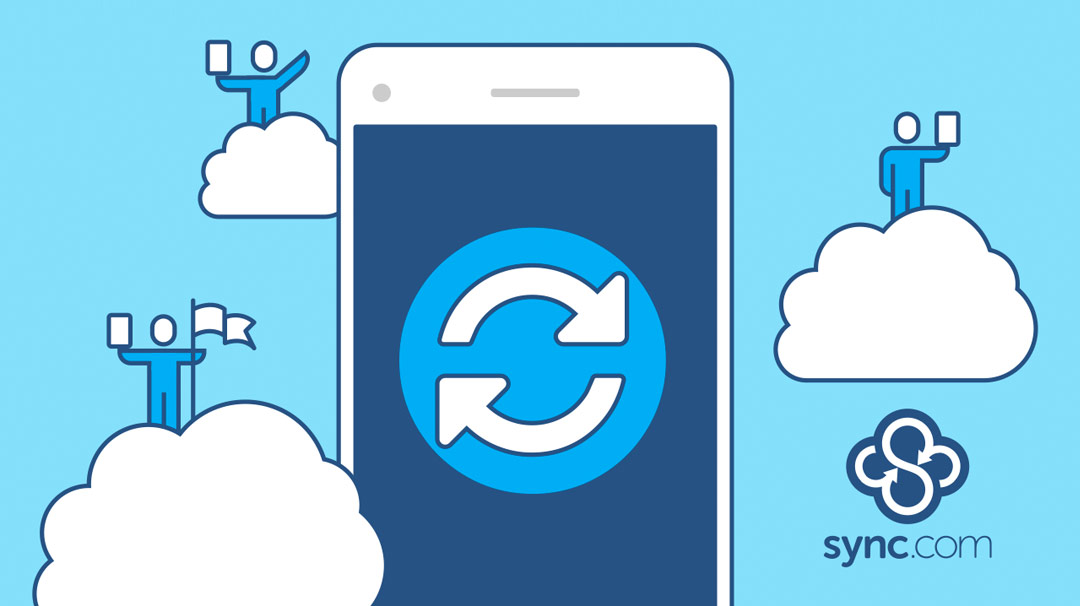How to Start a Business in Canada in 7 Steps
January 16, 2023

Victoria Donovan
Content Specialist at Sync

So you’ve decided you want to start your own business, but what should you do first? With so much information out there, it can be overwhelming deciding where to focus your energy. That’s why we’ve put together this straightforward guide to starting a new business in Canada in just seven steps.
1. Choose your business idea (and do your research)
Some entrepreneurs decide to start their own business because they already have an amazing business idea in mind, while others choose to start a business before they know what they’re going to sell. Either way, coming up with your business idea is just the beginning.
Once you have an idea, figure out what niche market your business will serve. A niche market is a group of potential customers who are united by a common interest or shared demographic. Niche is closely related to industry, but they aren’t exactly the same. For example, if your business idea is a pet store, you’ll be part of the pet industry. But your niche could be as general as pet owners in Canada, or as specific as purebred cat breeders in Ontario.
It’s all about finding a niche that strikes a balance between being general enough that there is a large market of potential customers while being distinct enough that you’ll be catering to a portion of the market that is currently underserved.
You’ll also want to conduct market research to determine how viable your business idea is, who your main competitors will be, and who your ideal customer is. This information will come in handy when you do everything from designing your product packaging to writing your marketing copy since you’ll be better equipped to communicate what sets you apart and why buying from your business is the best option.
It’s a good idea to write a business plan that contains all of this information, as well as your goals and how you plan to achieve them. Not only will this help you stay organized and make sure you have all your bases covered, but a business plan will also be a necessity if you’re going to seek out external funding like grants, investments, or bank loans.
Your business plan should also cover what products or services you will sell, as well as how you’ll handle manufacturing, packaging, inventory management, shipping, pricing, and more. Will you manufacture your own products, purchase them from a supplier, or opt for print-on-demand or dropshipping? Each choice you make will impact your bottom line, so weigh the pros and cons and make decisions that align with your goals for your business.
2. Decide on your business structure
It’s a good idea to figure out your business structure early on in the planning process, since this will determine a number of other factors, including whether or not you will have to register or incorporate your business. There are three main business structures that you will likely be deciding between.
Sole proprietorship
A sole proprietorship is the simplest business structure. It is an unincorporated business that is owned by a single individual who is personally responsible and liable for all business decisions, profits, and losses. If you are operating a sole proprietorship under your own legal name, it may not be necessary to register your business. A sole proprietorship is taxed at your personal income rate.
Corporation
A corporation is a separate legal entity, meaning that the owner(s) of the business are not personally responsible for the company’s debts. Corporations have access to additional benefits including better tax rates and increased access to capital, but the process of incorporating a business is more time-consuming and expensive than registering a sole proprietorship or partnership.
Partnership
A partnership is similar to a sole proprietorship, but with two or more owners who share liability.
3. Create your business name
Coming up with a business name can be both exciting and challenging since your name needs to effectively communicate your brand identity and what you sell, all while standing out as unique and memorable. Once you have an idea for a name, make sure to check that it isn’t already in use by doing a NUANS name search, which will provide you with a complete list of registered business names and trademarks in Canada.
If your business name is available, it’s also a good time to purchase the associated domain name. Even if you’re planning on operating an entirely brick-and-mortar business, an online presence goes a long way in establishing your credibility and making sure that it’s easy for potential customers to find you.
4. File the necessary legal forms
Once you’ve decided on your business name and structure, you have enough information to determine if you need to register or incorporate your business, in which case you will need to file certain legal forms with the government. Incorporation requires extensive paperwork, as well as ongoing administrative tasks to keep your records up to date. These documents can be difficult to prepare on your own, so consider using Ownr to start your business and take care of everything you need to stay compliant with Canadian laws.
In addition to filing to register or incorporate your business, you’ll need to apply for any business permits and licenses that are required at a municipal, provincial/territorial, and federal level.
5. Open a business bank account
While a business bank account is only a legal requirement if you incorporate, it’s always a good idea to keep your business and personal finances separate. You can even get money back when you open an RBC business bank account within 60 days of registering or incorporating your business with Ownr, as well as access to free invoicing and accounting software to make keeping track of your finances that much easier.
6. Register for a GST/HST number
If your business does $30,000 or more in a given calendar quarter or in the four preceding calendar quarters, you’ll be required to register for a GST/HST number, charge taxes on all taxable sales, and remit those taxes to the government. Even if you haven’t yet met the $30,000 threshold, you still might want to register for a GST/HST number, because you’ll immediately be eligible to claim tax credits and refunds before you even have to start charging taxes.
7. Launch your business
With all of the administrative preparation out of the way, you’re finally ready to launch your new business! With that said, the most successful business launches are the ones with a clear plan for getting the word out and bringing in customers. Consider using free or paid advertising and optimize your website for SEO to make it easier for people to find you.
Also, don’t forget about setting up cloud storage to boost your productivity and make sharing easier. Being Canadian, you’ll want truly Canadian cloud storage like Sync.com to ensure your data remains safe, secure, and in Canada.
Once you’ve been in business for some time, take a step back and evaluate how things are going and where there is room for improvement. No matter how much time you spend planning each aspect of your new business, you may find that things don’t always work out as you’d planned, and that’s okay! As an entrepreneur, it’s important that you are willing to pivot and adjust your plans as needed for the long-term benefit of your company.
Starting your own business is a huge undertaking that requires a ton of hard work and resilience if you hope to be successful. But remember, you don’t have to do it all alone! Outsourcing those necessary but time-consuming tasks to a service like Ownr can help take the little things off your plate so that you can focus on the big picture.
Ownr has helped over 90,000 Canadians not only register but manage and grow their businesses. Business Link clients can unlock an exclusive promotion by registering their business with Ownr.
Save 20% on the cost of registering your sole proprietorship or incorporation when you follow this link.

